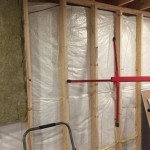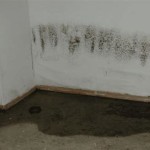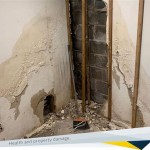Best Ways to Keep Your Basement Smelling Fresh
Basements, often relegated to storage or utility spaces, are particularly susceptible to musty odors. This is primarily due to their underground location, which makes them prone to dampness and inadequate ventilation. A consistently unpleasant odor not only makes the space less inviting but can also indicate underlying problems such as mold growth or water damage. Addressing the sources of these odors and implementing preventive measures are crucial for maintaining a fresh-smelling basement.
The characteristic "basement smell" is often a complex mixture of biological and environmental factors. Humidity is a major contributor, creating an environment conducive to mold and mildew. These microorganisms thrive in damp conditions and release volatile organic compounds (VOCs) that produce musty and earthy odors. Furthermore, basements often have concrete floors and walls, which are porous and can absorb moisture and odors over time. Improperly sealed foundations can also allow groundwater to seep into the basement, further exacerbating the problem.
Beyond the unpleasant smell, a musty basement can also pose health risks. Mold spores released into the air can trigger allergic reactions, respiratory problems, and other health issues, particularly for individuals with sensitivities or pre-existing conditions. Therefore, maintaining a fresh-smelling basement is not just about aesthetics; it's about creating a healthier living environment.
Identifying and Addressing the Source of the Odor
The first step in eliminating basement odors is to identify their source. A thorough inspection of the basement is necessary to pinpoint areas of dampness, mold growth, or other potential sources of the smell. Pay close attention to corners, walls, floors, and areas around pipes and windows, as these are common areas for moisture accumulation.
Visible mold growth should be addressed immediately. Small areas of mold can often be cleaned with a solution of bleach and water (always use appropriate safety precautions, including ventilation and protective gear). For larger or more extensive mold infestations, professional mold remediation services are recommended. These professionals have the expertise and equipment to safely and effectively remove mold and prevent its recurrence.
Water leaks, whether from plumbing or the foundation, must be repaired promptly. Leaky pipes should be fixed by a qualified plumber, and foundation cracks should be sealed to prevent water from entering the basement. Addressing water intrusion is essential not only for eliminating odors but also for preventing structural damage to the building.
Another potential source of odors is organic matter stored in the basement. Cardboard boxes, newspapers, and fabrics can absorb moisture and promote mold growth. Storing these items in airtight containers or, ideally, in a different location can help reduce odors. Regularly inspect stored items for signs of mold or mildew and discard any affected materials.
Improving Ventilation and Reducing Humidity
Proper ventilation is crucial for maintaining a dry and fresh-smelling basement. Stagnant air allows moisture to accumulate, creating an ideal environment for mold and mildew. Improving ventilation helps to circulate air, reduce humidity, and prevent the build-up of odors.
One of the simplest ways to improve ventilation is to open windows when weather permits. This allows fresh air to circulate through the basement and helps to dry out damp areas. However, this is only effective when the outdoor air is drier than the air inside the basement. Opening windows on humid days can actually worsen the problem.
For basements with limited or no windows, mechanical ventilation is necessary. A dehumidifier is an effective way to remove excess moisture from the air, reducing humidity levels and preventing mold growth. Choose a dehumidifier with a capacity appropriate for the size of the basement and empty the water collection tank regularly. Some dehumidifiers can be connected to a drain hose for continuous operation.
Another option is to install exhaust fans. These fans can be used to draw stale air out of the basement and vent it to the outside. Exhaust fans are particularly useful in areas with high humidity, such as laundry rooms or bathrooms. Consider installing a timer or humidity sensor to automate the operation of the exhaust fan.
Air conditioning can also help to reduce humidity in the basement. Air conditioners remove moisture from the air as they cool, contributing to a drier and fresher environment. If the basement is connected to the central air conditioning system, ensure that the vents are open and that the system is operating efficiently.
Consider the use of a Heat Recovery Ventilator (HRV) or Energy Recovery Ventilator (ERV). These systems exchange stale indoor air with fresh outdoor air while also recovering heat or energy. They are particularly useful in energy-efficient homes where air leakage is minimized. HRVs are more effective in colder climates for recovering heat, while ERVs are better suited for humid climates as they also recover moisture.
Cleaning and Maintenance Practices
Regular cleaning and maintenance are essential for preventing basement odors from returning. A thorough cleaning of the basement should be performed periodically to remove dust, dirt, and debris that can contribute to odors.
Vacuuming the basement floor regularly helps to remove dust, dirt, and mold spores. Pay particular attention to corners and edges, where dust and debris tend to accumulate. Use a vacuum cleaner with a HEPA filter to trap fine particles and prevent them from being recirculated into the air.
Washing the basement floor with a mild detergent and water can help to remove stains and odors. Avoid using harsh chemicals or abrasive cleaners, as these can damage the floor surface. Ensure that the floor is completely dry after washing to prevent moisture from accumulating.
Clean walls and other surfaces with a damp cloth or sponge and a mild detergent solution. This helps to remove dust, dirt, and mold spores. For areas with visible mold growth, use a solution of bleach and water (always use appropriate safety precautions). Rinse surfaces thoroughly with clean water and allow them to dry completely.
Regularly inspect the basement for signs of water leaks or mold growth. Addressing these problems promptly can prevent them from escalating and causing odors. Repair any leaks and clean up any mold growth as soon as possible.
To further combat odors, consider using odor absorbers or air fresheners. Baking soda is a natural odor absorber that can be placed in open containers around the basement. Activated charcoal is another effective odor absorber that can be used in a similar way. Commercial air fresheners can also be used, but choose products that are fragrance-free or contain natural scents, as some artificial fragrances can irritate sensitive individuals.
Maintaining proper drainage around the foundation can help prevent water from seeping into the basement. Ensure that gutters and downspouts are clean and functioning properly, and that the ground slopes away from the foundation. Consider installing a French drain to divert water away from the foundation.
Ensuring proper insulation in the basement can also help to regulate temperature and reduce condensation. Insulation helps to prevent warm, moist air from coming into contact with cold surfaces, which can lead to condensation and mold growth. Insulate walls and ceilings to create a more comfortable and dry environment.
By identifying and addressing the source of the odor, improving ventilation and reducing humidity, and implementing regular cleaning and maintenance practices, homeowners can effectively keep their basements smelling fresh and create a healthier living environment. Consistent attention to these factors will contribute significantly to a noticeable reduction in musty odors and promote a more pleasant and usable basement space.

How To Make A Basement Smell Better With S Wikihow

How To Make A Basement Smell Better With S Wikihow

How To Make A Basement Smell Better With S Wikihow

How To Get Rid Of Basement Odor And Why It Smells In The First Place

How To Make A Basement Smell Better With S Wikihow

How To Get Rid Of Basement Odor And Why It Smells In The First Place

How To Eliminate Basement Odor And Sewer Smells Family Handyman

How To Get Rid Of Basement Odor And Why It Smells In The First Place

How To Make A Basement Smell Better With S Wikihow

8 Steps To Get Rid Of Musty Basement Smells Baker S Waterproofing
Related Posts







